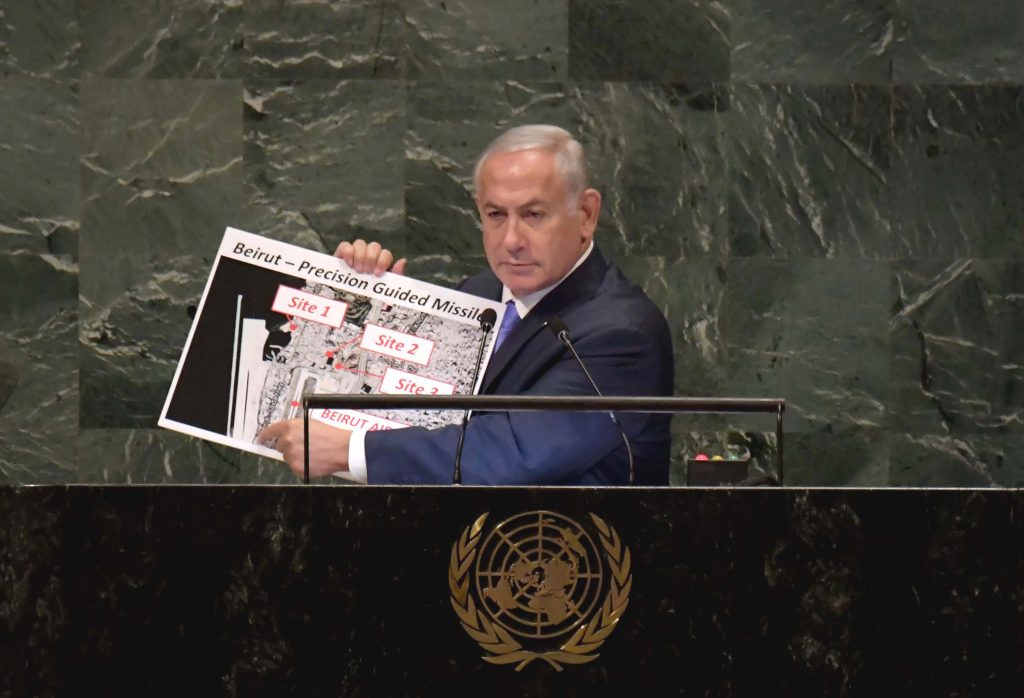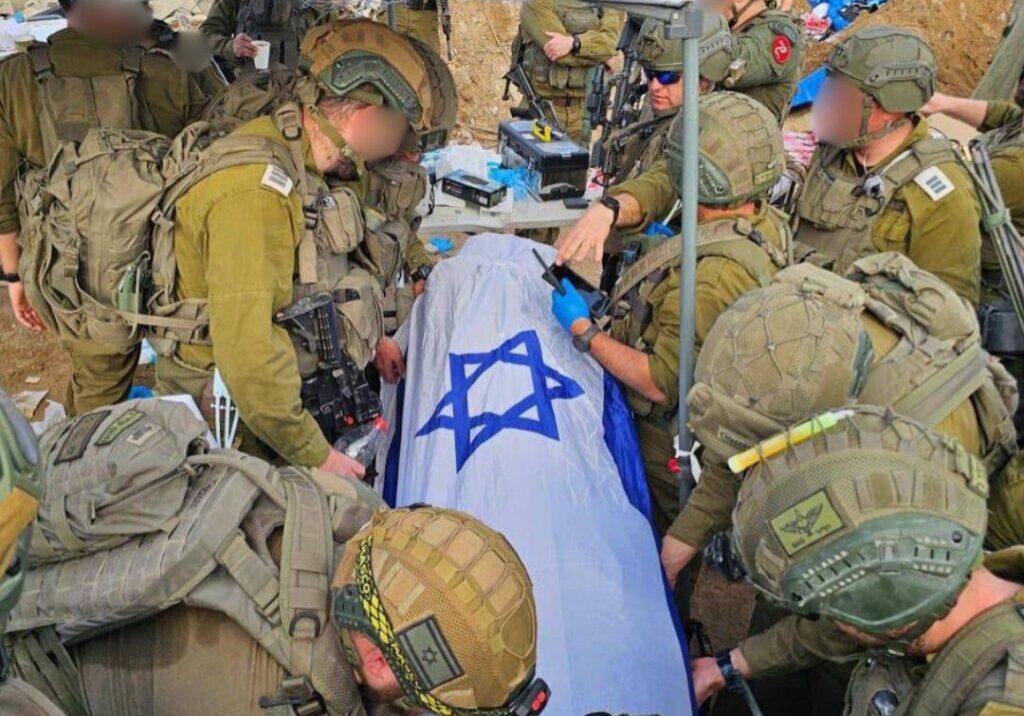Australia/Israel Review
Behind the News – November 2018
Nov 8, 2018 | AIJAC staff

TERROR AND ROCKET REPORT
On Oct. 7, two Israelis, Ziv Hajbi, 35 and Kim Levengrond-Yehezkel, 28 were shot and murdered at the Barkan joint industrial zone, where Israelis and Palestinians work together, by a Palestinian co-worker. A third Israeli was critically injured.
On Oct. 17, several heavy rockets were fired from Gaza towards central Israel, with one causing severe damage to a family home in Beersheba.
The Gazan “March of Return” campaign escalated during the first few weeks of October, with increased usage of hand grenades and IEDs by the rioters, as well as a rise in the number of attempts to breach the fence and launchings of incendiary kites and balloons.
Meanwhile, a report by the Jewish National Fund estimated that since the beginning of the Palestinian demonstrations in March, more than 1,100 fires have been caused by incendiary devices launched from Gaza, which have burnt at least 1,200 hectares of forest, as well as considerable farmland.
On Oct. 11, Israel destroyed a Hamas terror tunnel that had infiltrated 200 metres from Gaza into Israeli territory. This was the 15th such tunnel to be detected and destroyed by the IDF since Oct. 2017.
There were also several stabbing attacks.
ISRAEL FACILITATES FUEL SHIPMENTS TO GAZA DESPITE PA OBJECTIONS
On Oct. 12, Israel facilitated the transfer of diesel fuel purchased by Qatar to the Gaza Strip, despite objections by the Palestinian Authority (PA). PA President Mahmoud Abbas opposes any assistance to the Strip until Hamas agrees to relinquish control of Gaza to the PA under a deal reached last year.
However, later that day Israel ordered a halt in fuel deliveries to Gaza in response to escalating violence along the Gaza-Israel border, with Palestinian protesters employing numerous explosive devices and several attempts to breach the border fence. Israel’s Defence Minister Avigdor Lieberman said, “Israel will not tolerate a situation in which fuel tankers are allowed to enter Gaza on the one hand, while terror and violence are used against IDF soldiers and Israeli citizens on the other.”
Following a decline in the violence, the fuel shipments resumed on Oct. 21.
UNRWA WORKERS FLEE AFTER DEATH THREATS
On Oct. 1, nine of the 11 non-Palestinian employees of the United Nations Relief and Works Agency (UNRWA) in Gaza were evacuated to Jerusalem after they were subjected to death threats and prevented from accessing their offices by demonstrators.
The threats came as part of the protests organised by the Gaza employees’ union against lay-offs by the agency, prompted in part by a US decision to cease funding UNRWA.
ISRAEL REVEALS NUCLEAR WAREHOUSE OUTSIDE TEHERAN
On Sept. 27, Israeli PM Binyamin Netanyahu, speaking at the UN General Assembly, outlined accusations that Iran was maintaining a secret atomic warehouse just outside Teheran, near Shourabad.
Netanyahu also alleged that 15 kg. of radioactive material had been removed from the site and spread around Teheran in August, and that Israel had informed the International Atomic Energy Agency (IAEA) about the warehouse six weeks previously, but the IAEA had failed to act.
In the same UN speech, Netanyahu also exposed three alleged Hezbollah surface-to-surface missile production sites in suburban Beirut. The purpose of the underground facilities, located inside the densely populated Uza’i neighbourhood next to a school, a mosque, a soccer field and the airport, was to build guidance systems to increase the accuracy of Hezbollah’s missiles, Netanyahu said.
HEZBOLLAH ORGANISED CRIME UNDER PRESSURE
International pressure appears to be mounting against Hezbollah’s illegal international money laundering and organised crimes operations. On Oct. 16, the US designated Hezbollah (and four other groups) as transnational criminal organisations. A special task force of US prosecutors specialising in drug trafficking, terror, international crime and money laundering was set up to investigate individuals and networks supporting Hezbollah.
Meanwhile, on Sept. 22, Brazil detained Assad Ahmad Barakat near the border with Paraguay and Argentina. Barakat is suspected of being one of the main financial operators working to supply drug money to Hezbollah from South America.
INDIA AND SOUTH KOREA HALT IRAN OIL IMPORTS
India, the second-largest buyer of Iranian oil, importing about 27% of Iran’s total exports, appears to be halting all purchases from Iran – joining South Korea, whose imports of Iranian oil fell to zero in September, and Japan, which is also halting oil imports from Iran. Indian oil companies haven’t requested any Iranian petroleum shipments for loading in November.
Renewed US sanctions targeting both Iranian oil exports and access to international financial markets come into force on Nov. 5.
Meanwhile, an Israeli Foreign Ministry document alleges that Russia and Iran reached a deal to attempt to circumvent the second round of US sanctions during a summit meeting in September. According to the purported agreement, Iran would supply crude oil to Russia through the Caspian Sea to be exported worldwide, allowing companies to skirt the US sanctions on Iran.
FRANCE CONFIRMS IRAN BEHIND BOMB PLOT
On Oct. 2, the French government stated that Iran’s intelligence ministry was responsible “without any doubt” for a bomb plot to attack a June 30 ‘Free Iran’ rally organised by the anti-regime Iran National Council of Resistance (NCRI). Twenty-five thousand Iranian opposition supporters gathered at the rally in Villepinte, outside Paris, together with leading US figures including Rudolph Giuliani, US President Trump’s attorney and a former Mayor of New York.
A French diplomatic source said that Iran’s deputy Minister and Director General of Intelligence, Saeid Hasemi Moghadam, had ordered the attack and Assadollah Asadi, a Vienna-based diplomat, had put it into action.
Asadi was arrested in Germany while Belgium announced in July that it had arrested a couple who were suspected of preparing to drive a car packed with explosives to the rally.
In July, Israel’s intelligence agency, Mossad, claimed that it had given Germany, France and Belgium crucial intelligence information about the planned attack.
PA HUMAN RIGHTS VIOLATIONS
According to an October report by The Committee of Families of Political Prisoners in the West Bank, there were 685 violations of human rights by the Palestinian Authority (PA) security forces in a single month, including, but not limited to, arbitrary mass arrest and detention, raids, and property confiscation. The report also noted this is a drastic increase from previous months.
In addition, on Oct 22, Human Rights Watch (HRW) released a report that said “the Fatah-led Palestinian Authority in the West Bank and Hamas authorities in Gaza routinely arrest and torture peaceful critics and opponents” and “the systematic practice of torture by Palestinian authorities may amount to a crime against humanity.” HRW said the report was the result of a two-year investigation.
ISRAELI-ARAB WOMEN AND MUNICIPAL ELECTIONS
The 2018 Israeli municipal elections will feature an unprecedented number of Israeli Arab women running as candidates. In a historic first, the local elections, to be held on Oct. 30, include all-women candidate lists running in a number of Arab towns and villages. There are also two women running for mayor in two separate Arab towns. In past municipal elections, female Israeli Arab candidates were relatively uncommon.






